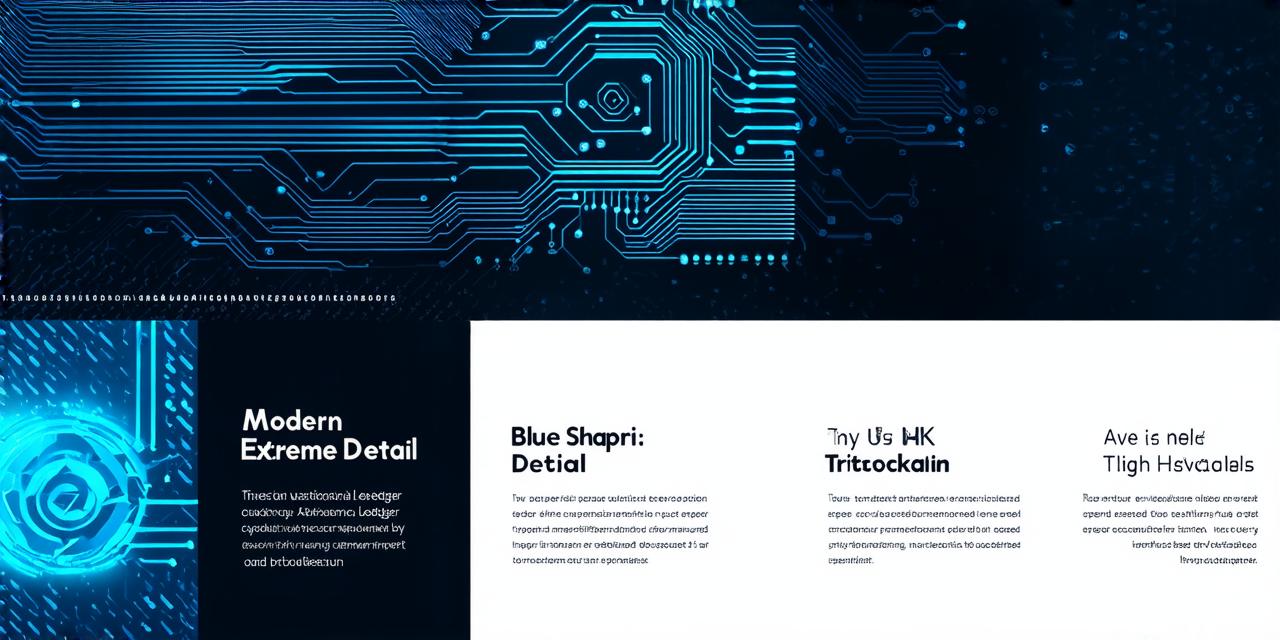Blockchain technology has taken the world by storm. It was first introduced in 2008 with the creation of Bitcoin, and since then, it has revolutionized various industries like finance, healthcare, supply chain management, and more.
What is Blockchain?
A blockchain is a decentralized, distributed ledger that records transactions across multiple computers. It was designed to provide a secure, transparent, and tamper-proof way of storing and sharing data. In simple terms, it’s like a digital notebook where all the transactions are recorded and verified by a network of users instead of a central authority.
The decentralized nature of blockchain means that there is no single point of failure. Instead, data is stored in blocks that are linked together in a chain. Each block contains information about a transaction, and once it’s added to the chain, it cannot be altered or deleted. This makes it almost impossible for anyone to manipulate the data.
One of the key features of blockchain is its immutability. Once data is recorded on a blockchain, it cannot be changed or deleted. This ensures that the data is accurate and trustworthy, which makes it an ideal solution for industries that require transparency and accountability.
Another unique feature of blockchain is its consensus mechanism. In order to add a new block to the chain, all the nodes in the network must agree on its validity. This process ensures that only legitimate transactions are recorded on the blockchain, which helps to prevent fraud and other malicious activities.
Applications of Blockchain Technology
Blockchain technology has numerous applications across various industries. Let’s take a look at some of them.

- Cryptocurrencies: The most well-known application of blockchain technology is cryptocurrencies like Bitcoin, Ethereum, and Litecoin. These digital currencies are decentralized and use blockchain to record transactions and maintain their value.
- Supply Chain Management: Blockchain can be used to track products from the point of origin to the final destination. This helps to prevent fraud, counterfeiting, and ensure that products are genuine.
- Healthcare: Blockchain can be used to store patient data securely and transparently. It can also help to prevent medical identity theft and ensure that patients have control over their own data.
- Voting Systems: Blockchain technology can be used to create secure and transparent voting systems. It can help to prevent voter fraud and ensure that the voting process is fair and free from manipulation.
- Smart Contracts: Blockchain can also be used to create smart contracts, which are self-executing contracts with the terms of the agreement between buyer and seller being directly written into lines of code.
Benefits of Blockchain Technology
Blockchain technology offers several benefits that make it an attractive solution for various industries. Let’s take a look at some of them.
- Decentralization: Blockchain is decentralized, which means that there is no central authority controlling the network. This ensures that the network is resilient and can withstand attacks or failures.
- Transparency: All transactions on a blockchain are recorded in public ledgers, which makes them transparent and easy to access.
- Security: The use of cryptography and consensus mechanisms makes blockchain extremely secure. Once data is recorded on the blockchain, it cannot be altered or deleted.
- Cost-effective: Blockchain can be used to automate processes, reducing the need for intermediaries and saving costs.
- Traceability: Blockchain can be used to track products from the point of origin to the final destination, making it easy to identify where a product came from and who handled it.
Summary
Blockchain technology is truly revolutionary, and its applications are vast and varied. From cryptocurrencies to supply chain management and healthcare, blockchain can transform the way we store and share data. Its decentralized nature, transparency, security, and cost-effectiveness make it an attractive solution for various industries.
